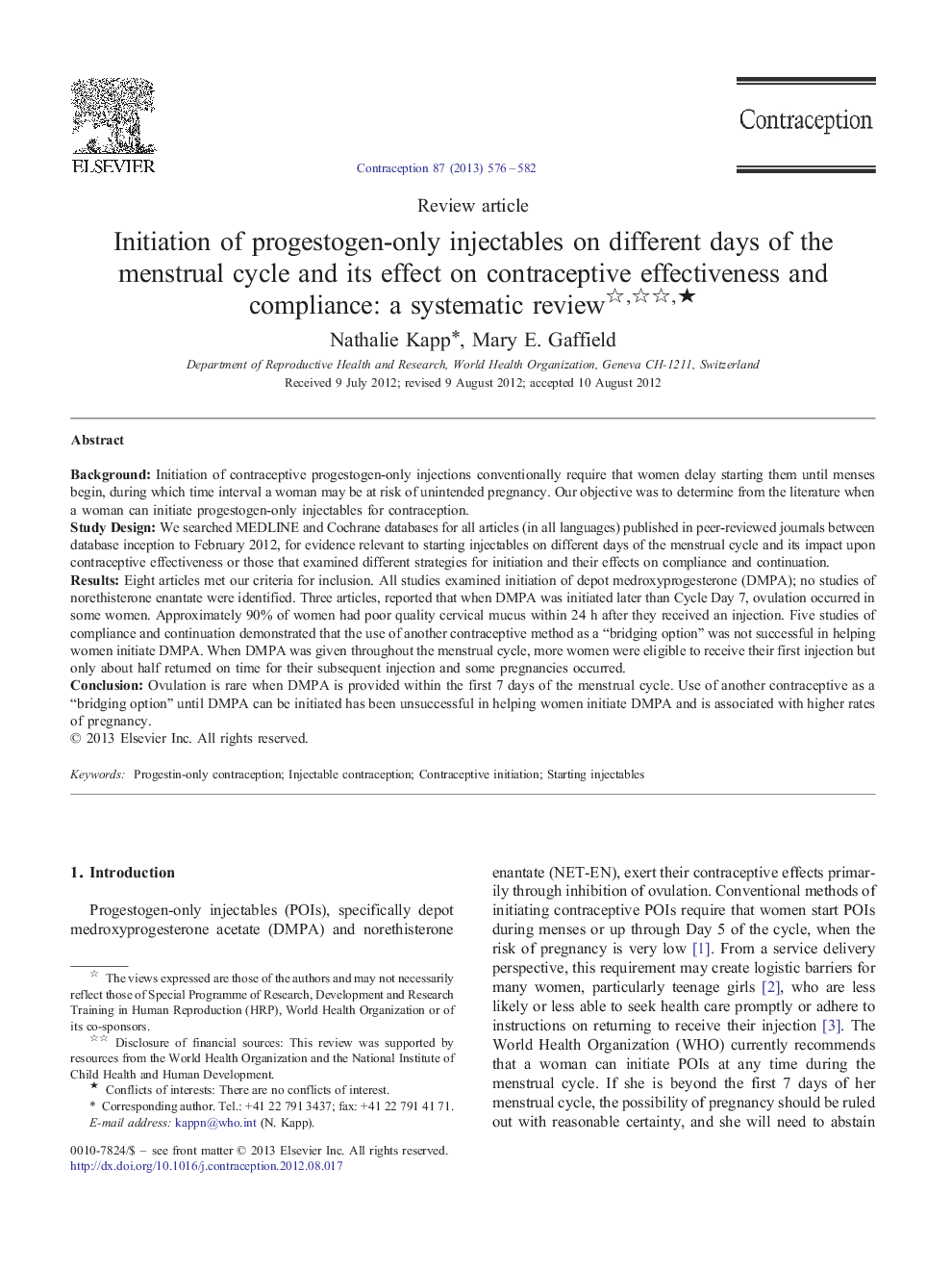| Article ID | Journal | Published Year | Pages | File Type |
|---|---|---|---|---|
| 3913480 | Contraception | 2013 | 7 Pages |
BackgroundInitiation of contraceptive progestogen-only injections conventionally require that women delay starting them until menses begin, during which time interval a woman may be at risk of unintended pregnancy. Our objective was to determine from the literature when a woman can initiate progestogen-only injectables for contraception.Study DesignWe searched MEDLINE and Cochrane databases for all articles (in all languages) published in peer-reviewed journals between database inception to February 2012, for evidence relevant to starting injectables on different days of the menstrual cycle and its impact upon contraceptive effectiveness or those that examined different strategies for initiation and their effects on compliance and continuation.ResultsEight articles met our criteria for inclusion. All studies examined initiation of depot medroxyprogesterone (DMPA); no studies of norethisterone enantate were identified. Three articles, reported that when DMPA was initiated later than Cycle Day 7, ovulation occurred in some women. Approximately 90% of women had poor quality cervical mucus within 24 h after they received an injection. Five studies of compliance and continuation demonstrated that the use of another contraceptive method as a “bridging option” was not successful in helping women initiate DMPA. When DMPA was given throughout the menstrual cycle, more women were eligible to receive their first injection but only about half returned on time for their subsequent injection and some pregnancies occurred.ConclusionOvulation is rare when DMPA is provided within the first 7 days of the menstrual cycle. Use of another contraceptive as a “bridging option” until DMPA can be initiated has been unsuccessful in helping women initiate DMPA and is associated with higher rates of pregnancy.
